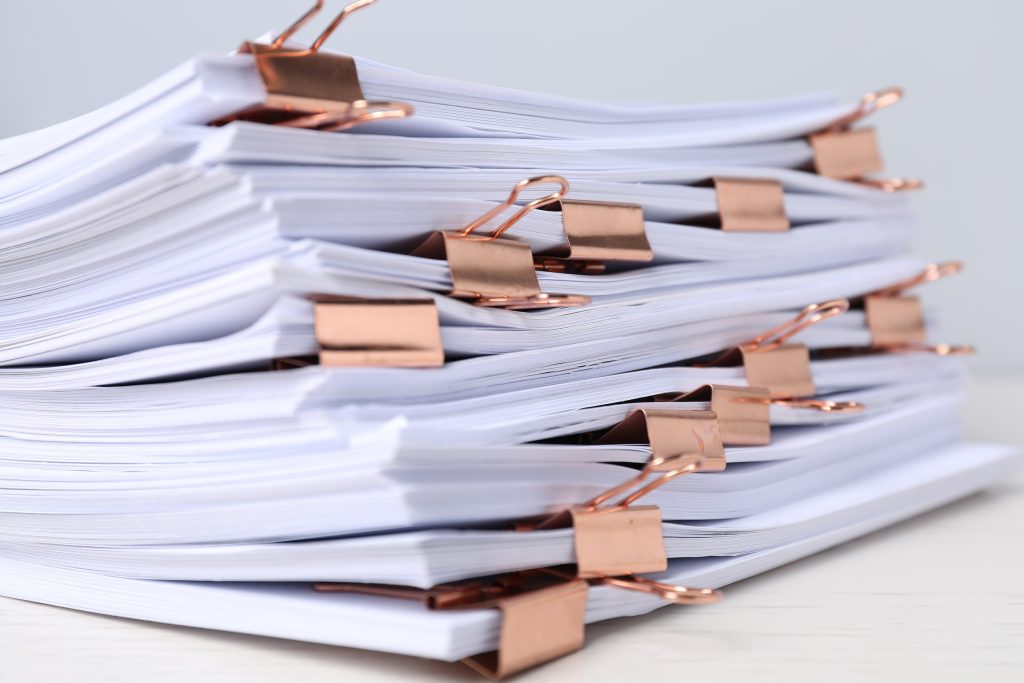
After a person passes away, their family often faces the difficult task of sorting through a lifetime of belongings, including a mountain of paperwork. Many people assume that all of a person’s documents and records become the property of their estate or next of kin. However, the law sees things differently for certain types of official records. In fact, issuing agencies consider several key personal documents their property. While your executor can request copies, you cannot legally keep the originals. Understanding this distinction is therefore crucial for a smooth estate settlement process.
1. The U.S. Passport
A United States passport is one of the most important forms of identification. Despite this, it never truly belongs to the individual holding it. According to federal law, a passport remains the property of the U.S. government at all times. Consequently, upon the death of the holder, you should technically return the passport to the Department of State for cancellation. This action prevents the fraudulent use of the document for identity theft or illegal travel.
2. The Social Security Card
The familiar blue and white Social Security card is another document that legally belongs to the government, specifically the Social Security Administration (SSA). While the government permanently assigns a Social Security number to an individual, the physical card is merely evidence of that number. For this reason, the SSA advises you to destroy a deceased person’s card to prevent identity theft. Your executor’s job, therefore, is to notify the SSA of the death, not to possess the card itself.
3. The Driver’s License
A state’s Department of Motor Vehicles (DMV), or an equivalent agency, owns any state-issued driver’s license or identification card. It is a credential that grants the holder the privilege of driving, not a piece of personal property. When a person dies, you should return their license to the DMV so the agency can void it. This is an important step. Specifically, it helps prevent identity thieves from using a lost or stolen license to commit fraud.
4. Military Discharge Papers (DD Form 214)
Veterans require the DD Form 214 to access a wide range of benefits, including burial honors. While the family needs access to this form, the original document is technically a record belonging to the U.S. military. In fact, the National Archives and Records Administration (NARA) is the official custodian of these records. Consequently, if the original is lost, the executor or next of kin must request an official copy from NARA because they do not inherit ownership of the original document.
5. The Birth Certificate
A person’s birth certificate is the primary document for establishing identity. However, a government agency, typically a state’s office of vital records, holds the original record. The certificate in your possession is simply a certified copy of that official record. After death, this document doesn’t transfer as property. Rather, the executor will need to use it to prove the deceased’s identity when settling their affairs, as the official record always remains with the state.
6. The Death Certificate
This might seem counterintuitive, but even the death certificate itself is not the family’s property. The state’s vital records office creates and maintains the certificate as a legal record to document the death. For this process, the family and the executor can purchase certified copies, which are necessary for almost every aspect of settling an estate. However, the original, official record is a permanent government document. This makes the copies you hold essential but not legally “yours.”
7. A Certificate of Naturalization
Immigrants who become U.S. citizens treasure the Certificate of Naturalization. However, like a passport, it remains the property of the U.S. government. While it serves as proof of citizenship, it does not belong to the individual or their estate. The government retains the right to revoke it. Furthermore, it requires control over these documents to prevent fraud. Although a family may wish to keep it for sentimental reasons, it is legally a government asset.
8. A Pilot or Professional License
A governing body issues licenses to practice a profession, such as a pilot’s, doctor’s, or lawyer’s license. These personal documents are not property. Instead, they are proof that an individual has met certain standards, and in return, the agency has granted them the privilege to perform a specific job. Upon death, these licenses become void. For this reason, you should notify the issuing authority (like the FAA or a state medical board) of the holder’s passing because it retains ownership of the record.
9. A Green Card (Permanent Resident Card)
A Green Card, which is officially the Permanent Resident Card, grants a non-citizen the right to live and work in the United States. This card is the property of the U.S. government, specifically U.S. Citizenship and Immigration Services (USCIS). It is not a personal asset that someone can pass on or keep after death. For security purposes, you should ideally return the card to USCIS so the agency can officially invalidate and remove it from the system.
Navigating an Estate’s Paperwork
Settling an estate involves many legal nuances, and document ownership is a prime example. While families may keep many of these items for sentimental value, it’s important for an executor to understand their legal status. The primary responsibility is to use these documents to carry out final wishes. Afterward, the executor must handle them in a way that prevents fraud. Ultimately, knowing the government retains ownership of these key records can clarify an executor’s duties and protect the deceased’s identity
Were you aware that these personal documents aren’t legally yours? Share your reaction in the comments below.
Read More:
5 Common Medications That Have Been Linked to Personality Changes
5 Documentaries That Shook Local Communities—and Why You Should Watch Them
The post 9 Personal Documents That Aren’t Legally Yours After You Die appeared first on Budget and the Bees.







